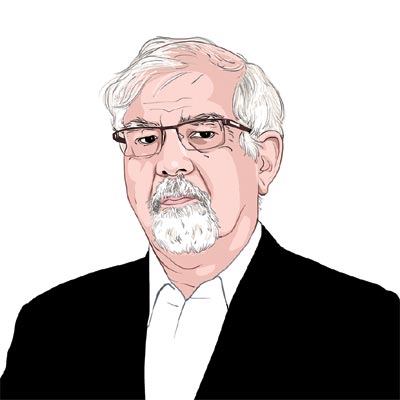Opinion Confucian confusion
For a new improved world order,the yuan must substantially appreciate over the next few years.
As the world prepares for the G-20 meetings in November,the prospect of a currency war is at centre stage. The two protagonists,the nice guys who brought you the Great Global Recession of 2008-9,are now squaring off for another battle royale. In one corner is David,the erstwhile poor country China,which through dint of hard work,frugality,savings and investment has uplifted itself from deep poverty. In the other corner is Goliath,grown fat by over-consumption and one who believes that China is playing unfair with exchange rates. This US stand naturally arouses latent anti-American sentiments around the world. Surely Goliath should be told where to get off. But is that so clear cut?
The question arises at the G-20 meetings,whose side should India and/or other developing nations take? The answer,for once,is not David. This is not a battle between a fat over-consumer and a slim underdog saver. This is a battle for the rules of the game,and that often misused word,governance.
Is this only a US-China war,and one which India is best advised to stay out of? We have all forgotten about high tariffs and protectionism. And the world is well rid of that beggar-thy-neighbour disease. India took a long time,longer than most,to realise that by imposing tariffs,you may temporarily increase employment,but that it came with huge efficiency losses. Why not,instead of imposing tariffs,depreciate your currency. Now the imports become more expensive,exports cheaper,your production more efficient,an increase in your employment and a decrease in your neighbours employment (as she buys your goods). A true cold-bloodedly efficient beggar-thy-neighbour policy. Contrast that with traditional protectionism which axes both your own feet and that of the neighbour.
When this policy is practiced to an extreme,it is no different than what our elders called mercantilism. The dictionary defines mercantilism as: The theory and system of political economy prevailing in Europe after the decline of feudalism,based on national policies of accumulating bullion,establishing colonies and a merchant marine,and developing industry and mining to attain a favorable balance of trade. Bullion: China has the largest level of reserves in the world,today at more than 2.5 trillion dollars,and in 2007 Chinas reserves were more than 20 per cent of the worlds total. In 2009,Chinas GDP was over 7 per cent of world GDP and its reserves are estimated to have been more than a third of the worlds stock of reserves.
So we have the decline of feudalism/communism in China,and accumulation of bullion,far in excess of what the world has ever seen before. Establishing colonies and a merchant marine are a part of the old-fashioned way of practicing mercantilism; but old and new mercantilism requires developing industry and mining to attain a favorable balance of trade. Chinas industry/GDP ratio is off the charts,and among the non-oil exporting countries it has the highest share (approximately 50 per cent) of industry in GDP, tied with Botswana (population: 1.8 million) and Swaziland (population: 1.2 million). Chinas population: more than a 1,000 times larger than these industrial powerhouses.
What is to be done? What can be done in this battle between an extra fat mercantilist and a fat debtor? One attempt at a reduction of global imbalances involves the appreciation of the Chinese currency. Whenever this approach is mentioned,and indeed as is suggested by the lining up of the allies in the inappropriately called US-China war (the numbers above do not involve the US but the whole world,the universe one is talking about in this globalised world),the argument is made that the fury is about Chinas surpluses and not the surpluses of countries like Germany and Japan. This objection is false,misleading and misguided on at least three counts. First,having surpluses is normal; some countries have a higher desire to save (cultural or otherwise) and hence these countries will have surpluses rather than deficits. Second,only when the surplus is greater than normal should the country be targeted as an offender. Third,there are differences between a big offender (8 to 10 per cent of GDP China) and a small offender (1 to 4 per cent of GDP Germany and Japan,and Japan less than Germany).
But the objections continue. It is alleged,and correctly,that if China were to appreciate its currency as desired by big bad Goliath (and most of the rest of the world) ,that such a change is not going to solve all the worlds problems. Quite true. Nor is Chinas exchange rate appreciation going to substantially reduce Chinas surplus (the Chinese like to save and save and save and accumulate andaccumulate and invest and invest and not consume and not consume they are unlike the rest of us). This may also be true,albeit under certain very special conditions. The fact remains that one should not confuse necessary and sufficient conditions. No one knows how the world is going to end or what policies are sufficient to get world recovery,and world welfare,back to a normal growth path. But everybody knows that one policy that is absolutely necessary is that the Chinese yuan will have to substantially appreciate over the next few years. To object to that simple economic logic is to deny the reality that we all have red blood,and react similarly to economic incentives.
The writer is chairman of Oxus Investments,an emerging market advisory and fund management firm


